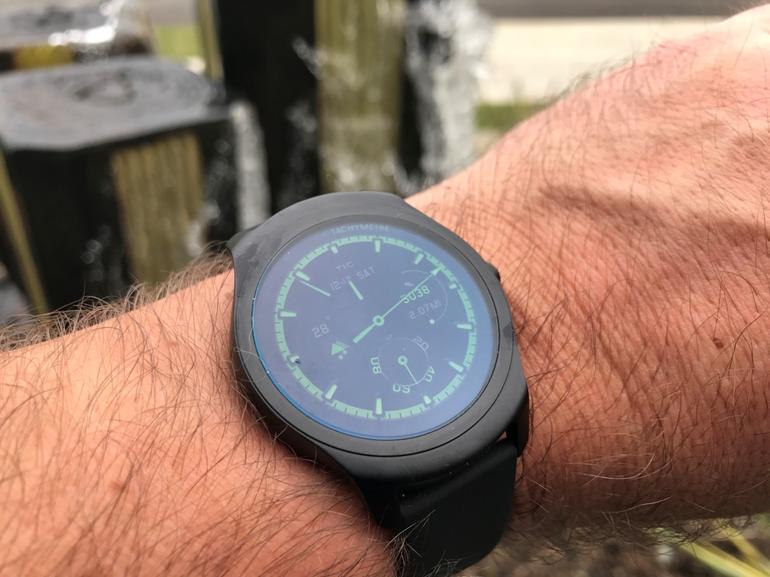Next Apple Watch faces the long road to mass smartwatch appeal


Even though we have seen significant progress on many fronts since the first Android Wear watches, we remain a long way from where the smartwatch can replace the phone.
When I wrote last month that Apple had outgrown Apple, I noted the company's challenge in one-upping the smartphone as a ubiquitous device. In theory, the smartwatch could be that device.
Moore's Law dictates that its computing core should become far smaller and consume less power. Meanwhile, agent technology continues to evolve at a fast clip. Despite Apple and Google implementing clever text entry workarounds for its platforms, smartwatches have limited surface area for input and screen real estate for output. If the old Apple trope that new devices demand new input methods holds true, the smartwatch could be more of a conduit for Siri and Google Assistant than smartphone-style apps.
As the market leader, though, Apple remains in a unique position to shape the future of the device. To serve its developers, it is bound to keep the Apple Watch an app platform for the foreseeable future. And in keeping with its traditional product evolution, it will no doubt keep advancing the watch's capabilities and keep it a premium companion to the iPhone.
Indeed, it's no surprise that the only other company to have noteworthy success in the broader smartwatch market is Samsung, the other industry smartphone powerhouse. Samsung has gone its own way with Tizen, its adopted operating system that it seems intent in using for everything beyond smartphones, where the allure of Google's services and app store are too compelling. It beat Apple to the punch with its first smartwatch and has been shipping watches with cellular connectivity -- a rumored direction for the Apple Watch -- for some time.
That leaves us at Android Wear, once the most logical extension of Android smartphone dominance and the target of smartwatch shortcomings. While a number of Android smartphone brands, including Samsung, LG, Huawei, and Motorola, launched a few iterations of Android Wear products, most have looked warily at releasing more.
But, in one respect, Android Wear is seeing a rash of support, and that's among luxury brands such as Montblanc, Movado, Tag Heuer, Louis Vuitton, and Michael Kors. That's an unexpected turn given Android's association with low-end commoditization. Then again, these brands have had few alternatives in entering the smartwatch space short of developing their own solution as Swatch seems to perpetually hint it will.
Indeed, Android Wear has also found its way into lower-priced fashion and sport product watches from Adidas, Casio, and Fossil, the latter two of which have long histories in smart wrist-wear experimentation. These licensees certainly would like to see smartwatches become as free of phone dependence as their analog wares are.
Mobovi, an upstart brand that has raised nearly $2.5 million on Kickstarter with its latest smartwatch effort, is among those who have recently hopped on Android Wear, at least outside of its native China. The Ticwatch E is an inexpensive ($99 via preorder pricing) sports watch that should have more appeal to younger consumers. But unlike many companies in the crowdfunding space that are trying to hang on for another month, the Ticwatch team recognizes that the smartwatch road is a long one.
The company acknowledges some fundamentals of the market today will remain -- namely, that the smartwatch's appeal will remain centered around health monitoring applications and that notifications will remain the primary horizontal application. It thinks better display technologies, longer battery life, and independence from the smartphone will go a long way toward bringing the wearables into the mainstream.
But even though we have seen significant progress on many of those fronts since the first Android Wear watches, we remain a long way from where the smartwatch can replace the phone. And without that happening, the case for even a cellular-enabled smartwatch is one that lacks mainstream appeal.
PREVIOUS AND RELATED COVERAGE:
Why you shouldn't get too excited about an LTE Apple Watch
According to Bloomberg, Apple has been busy working on adding LTE capability to the Apple Watch, and is looking to bring it to market as soon as the fall. Adding cellular connectivity to the Apple Watch surely allows it to break free of the iPhone, right? Wrong.
https://www.zdnet.com/article/why-you-shouldnt-get-too-excited-about-an-lte-apple-watch/Beyond the iPhone: Apple has outgrown Apple
A decade after the iPhone's unprecedented global impact, the company is increasingly making its presence felt inside devices made by others.
Swatch to release new operating system for smartwatches
There will soon be another watch operating system on the market. In an interview with Bloomberg Technology, Swatch CEO Nick Hayek said the company is making a new operating system aimed at smartwatches.